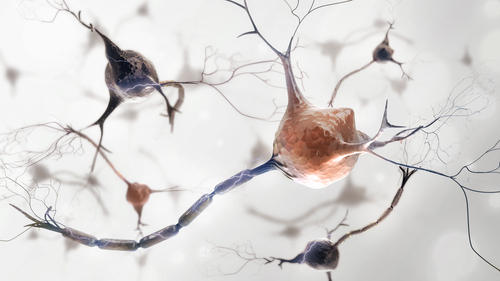Vps4 Protein Found to Protect Nerve Cells from Degeneration, Study Shows
Written by |

Enhanced production of a protein called Vps4 was shown to delay the degenerative process in injured nerve cells, which may help researchers to better understand and treat nerve damage in neurodegenerative disorders such as Parkinson’s disease and amyotrophic lateral sclerosis (ALS), a study says.
The findings were published in an article, “Rapid depletion of ESCRT protein Vps4 underlies injury-induced autophagic impediment and Wallerian degeneration,” in the journal Science Advances.
Nerve cells have tail-like structures called axons that transmit electrical impulses to communicate with muscle cells and other nerve cells. Failure of axonal integrity prevents nerve cells from functioning normally, and may cause axonal death and nerve cell degeneration.
Upon axon injury, these cells can undergo a process of progressive self-destruction called Wallerian degeneration, which is tightly controlled at molecular and cellular levels. For many years, NMNAT-related signals were the only mechanisms known to limit the effect of this process. Despite its relevance for normal and correct functioning of nerve cells, Wallerian degeneration and its underlying mechanisms are still poorly understood.
However, a team led by researchers from the Chinese Academy of Sciences has identified Vps4 to be effective in delaying the degradation of damaged nerves and play an important role in axonal integrity. They found that fruit flies lacking Vps4 protein experienced more severe age-dependent axonal degeneration than flies with normal protein levels.
To further explore this hypothesis, the team conducted the opposite experiment and induced an over-production of Vps4 protein in flies. They found that this strategy was sufficient to suppress injury-induced axonal degeneration.
Vps4 protein is a key component of a cellular machinery involve in autophagy, a cleaning system that ensures the destruction of a cell’s waste and damaged parts. Therefore, the team hypothesized that Vps4 could be contributing to axonal integrity by regulating its autophagic clearance process.
The researchers observed, in the absence of Vps4, an accumulation of autophagic vesicles in axons even before the breakdown of axonal integrity. In contrast, over-production of Vps4 substantially reduced the levels of injury-induced autophagy.
They found that the neuroprotection provided by Vps4 was not restricted to the regulation of the autophagy flux in axons, but also to the prevention of Wallerian degeneration. Experiments in the lab and with mice confirmed that Vps4’s neuroprotective role is also present in mammals.
Collectively, these findings suggest that “the rapid depletion of Vps4 protein may trigger injury-induced autophagy and axonal degeneration,” the researchers wrote. This may help explain many of the features of nerve cell degeneration linked to many human diseases.
Additional studies are still warranted to further explore how Vps4 is depleted upon injury, and how it can be used to develop targeted strategies to prevent axonal degeneration.
“In the future studies, suppressing the rapid degradation of Vps4 may be an important direction and is expected to obtain stronger neuroprotective effects,” Kai Liu, associate professor at the Hong Kong University of Science and Technology (HKUST) and co-senior author of the study, said in a news release.
Moreover, a combination of the Vps4 and NMNAT pathways “may also be a new strategy for the treatment of neural injury and degeneration,” he said.





